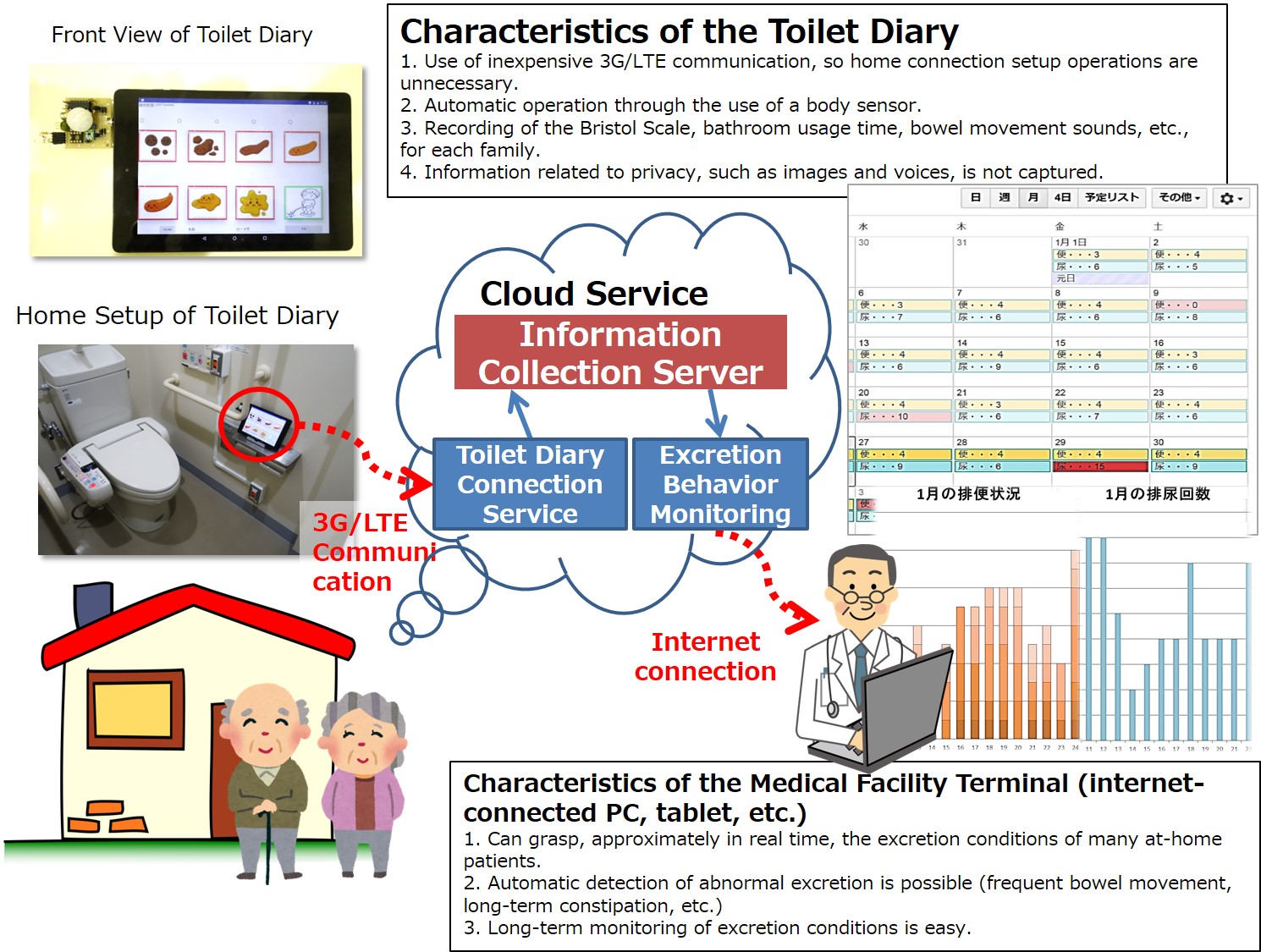Development of a Smart Device to Solve the Excretion Concerns of the Elderly
Research Press Release | March 15, 2016

Characteristics of the smart device, "Toilet Diary" (Kawaya Nikkicho)
|
Key Points |
|
|
|
Outline |
As Japan is quickly becoming an aged society, more than 30% of the elderly are troubled by excretion concerns, such as frequent urination and chronic constipation. This is now having a serious impact on QOL. Excretion is an important function that involves the dignity of the individual, and the handling by the medical and caregiver professions is not advanced at all. One background reason is that excretion concerns are difficult for the patients themselves to discuss with their families and primary care doctors. In addition, self-entry recording of excretion has had problems such as the patient’s failure to keep records, so it has not been possible to guarantee that it reliably leads to appropriate treatment. In order to solve these problems, the smart device that we have developed, called a “toilet diary”, can be simply set up in the home bathroom, and can share excretion conditions with a medical facility by using the cell phone infrastructure and a cloud service. Its functions are: (1) a removable touch panel design that can be set up in a bathroom without having an unpleasant appearance, (2) use of a body sensor to detect when a person enters or leaves the bathroom, (3) recording of the sounds of excretion while respecting privacy, (4) touch panel operation to select the user and the stool condition, and (5) real-time uploading of the obtained data, to automatically send the data to the primary care doctor (See the Figure above). In this way, the patient does not have to tell the doctor about excretion concerns, and the primary care doctor can in turn consult with a specialist, so that prompt and appropriate treatment is possible. The patient’s family can also easily check the excretion condition, so it is also expected to be an aid in caregiving. This research has been done in cooperation with the Hokkaido University Graduate School of Medicine, Department of Renal and Genitourinary Surgery (Professor Nobuo Shinohara), and the Hokkaido University Graduate School of Information Science and Technology, Division of Media and Network Technologies (Professor Tsuyoshi Yamamoto). |
|
| Inquiries |
Maho AMANO, University Reserach Administrator (URA) Hokkaido University URA station TEL:011-706-9596 / FAX:011-706-9582 mahoamano[at]cris.hokudai.ac.jp |
|
|
Japanese Link |
高齢者の排泄の悩みを解決するスマートデバイスを開発 (02.16.2016) | |
